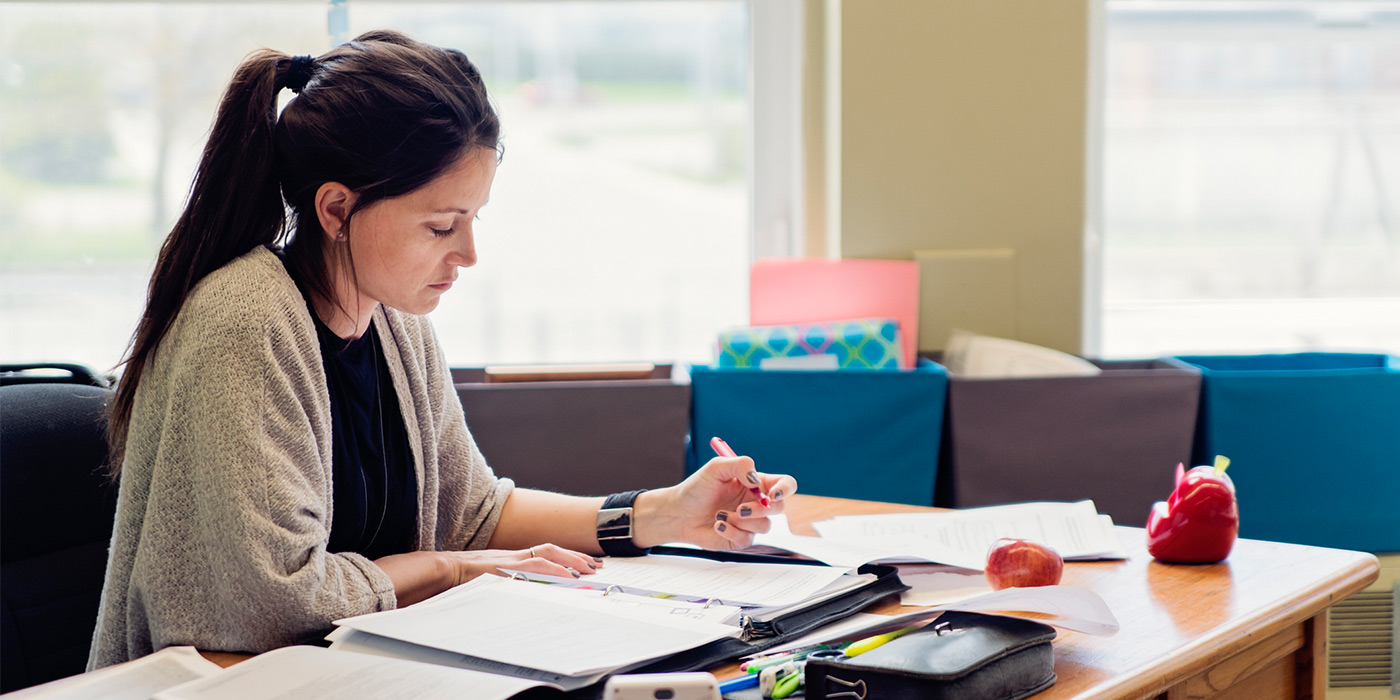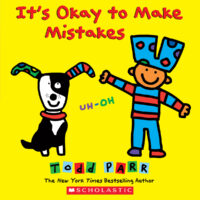How to Get Comfortable With Teacher Mistakes
Just like you teach students — mistakes are opportunities to learn!
New teachers will often feel pressure to be perfect, but the reality is that classroom management isn’t always easy at first. Mistakes are a learning opportunity, and teaching students how to learn from mistakes is a part of the job.
Whether you’re still learning the ins and outs of lesson planning or figuring out your students’ different learning styles, remembering that it’s human to make mistakes will help ease the burden of perceived perfection. After all, real learning happens when you make mistakes during your biggest challenges.
Here, experienced teachers Theresa Rindt and Jordan Potrzeba share how to get comfortable with making mistakes and the mistakes they’ve made when they started teaching that turned out to be the best lessons.
Get Used to Having Fun and Being Inclusive
A relaxed, fun learning environment is effective for both younger and older students, even middle schoolers. One of the biggest mistakes teachers make is being too rigid with their routine and expectations, which can set them up for disappointment and stress. It will help tremendously to strike a balance between fun and setting boundaries before the class period starts, especially during the first week of a new school year.
Recruiting your students to help set classroom rules and goals is also effective for managing students’ personal classroom responsibilities. This way, students learn about the classroom expectations and are less likely to lose respect for their teachers.
“Do not make day 1 all about the fun!” says Rindt, who teaches 3rd grade in Illinois. “I quickly realized that you need to set boundaries on the very first day of school. I have learned to include students in making classroom rules. It really does give them ownership. Keep those rules posted as a reminder to all that ‘this is what we decided is the best learning environment for us’ and do not change the rules without student input.”
Don’t Let Observations Cloud Your Perception of Yourself
It’s easy to get wrapped up in an official observation during class time. Despite best efforts, sometimes constructive criticism can leave you questioning your teaching ability — but don’t let it.
“One of the most memorable mistakes I’ve made was letting a 1-3 minute observation define me,” says Potrzeba, a 4th grade teacher in Florida. “We teach for 7 hours. 180 seconds does NOT define the amount of good teaching that happens during a day. Let it go and keep teaching!”
Learning to quickly accept and move on from critiques, especially as new teachers, will help you realize that everything worthwhile takes practice — even becoming the teacher you always wanted to be!
Communicate and Ask for Help
Whenever you goof up, it’s tempting to want to hide your mistake. But truly, there is no need to do that. Admitting your mistakes models good behavior to your students and shows accountability to your admins and parents of students.
“Honesty and trustworthiness go a long way,” says Rindt. “Communicate as soon as possible when you have realized you’ve made a mistake. Believe me, this is hard to do! Do not try to cover up your mistakes, but learn from them. By making mistakes, we learn what to do or not to do next time. It takes time, but in the long run, it makes your teaching career so much easier.”
Asking for help also eases any sense of guilt or burden you may be carrying, Potrzeba says.
Dare to Be Different
Allowing your personality to shine through and using your own approach to teaching will help your students open up, be themselves, and motivate them to learn.
Your students will not only be grateful for the example, but will also remember you fondly years down the line for your encouragement. There will definitely be at least one or two students who talk about your class for years to come.
“When you're not a monotonous teacher, you stick out as a big target,” says Potrzeba. “People are going to question you and possibly be jealous of you. Sometimes it was just easier to blend in with the others so you don't feel all the eyes staring at you and others breathing down your neck. The problem with that is, that's not what's best for you and your class family. BE YOU. Dare to be different.”
Shop the best books about making mistakes below for further reading material! You can find all books and activities at The Teacher Store.
Parr's bestselling books have reminded kids to embrace differences, to be thankful, to love one another, and to be themselves.
Colorful rhyming text reveals the many ways superheroes sometimes slip up and err, but ultimately get on with their day, and keep on saving the world in the most super way!
Richard Scarry's classic book of illustrated stories is just as entertaining to kids today as it was when he first created it.
Stacey's so excited! She's invited her friends from the Baby-sitters Club down to New York City for a long weekend.
Organized into color-coded levels, these short, compelling stories will have both emergent and more advanced readers entertained and engaged as they explore new stories with the charming and adventurous Paddington!








